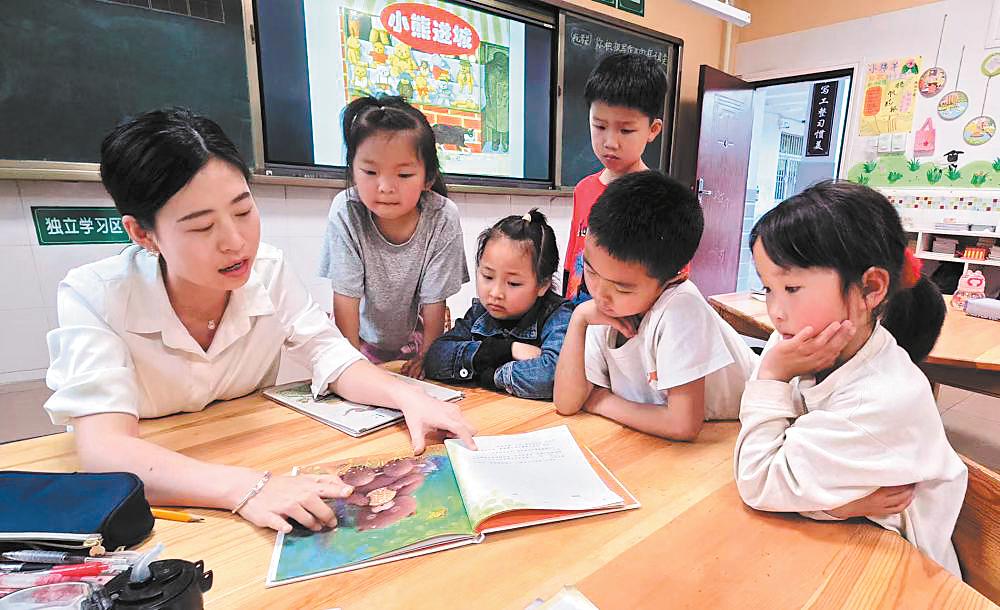School helps kids with more than just grades
Student-centered holistic development prompts families to move from major cities to rural primary in Sichuan


Since moving, Zheng has seen significant changes in her children. Her elder son now enjoys school and is eager to attend, even if his academic performance hasn't dramatically improved.
"He has completely changed now. He's eager to go to school and even rushes through dinner, asking me what time he can go back to school to do his homework. He truly enjoys being at school now," the mother said.
The school's "leave-it-blank" periods allow students to plan their activities, fostering independence and creativity. The children have ample free time to play and explore, with well-used playground equipment and a supportive, less structured environment.
Zheng appreciates the school's focus on holistic development. "The teachers, while perhaps not as skilled academically as urban educators, are deeply committed to the students' well-being," she said. Her younger son has made great strides in social and emotional development and communicates more openly about his school experiences. "He totally trusts his teacher who is also our neighbor and often hugs her," she said.
"I believe moving here was the right choice for our children at this stage. I think growing up in a rural environment is ideal for kids, especially during elementary years, as it allows them to connect with nature. I feel we might have realized this a bit late," she said.
Fanjia Primary School has transformed its rural setting into an expansive natural classroom. Students participate in hands-on activities such as exploring nearby caves, observing insects and crafting slingshots. The curriculum is set in the surrounding environment, with teachers guiding students in identifying wild plants and fruits. Through the approach, students have documented hundreds of illustrated nature journals.
During Teacher's Day this year, the school's principal hosted a feast for parents, teachers and students. "It was a genuine celebration, unlike anything in the city," Zheng said.
Regarding middle school, she focuses on living in the present. "We can't plan every step of their lives," she said. "We just need to ensure they are happy and thriving now."
Wu Wei, a 44-year-old university lecturer living in Beijing, transferred his 12-year-old son to the school this year. The decision to switch schools was primarily driven by Wu's desire for his son to grow up in a more natural and relaxed environment.
The previous school, with its heavy emphasis on student management, had made his son anxious.
Wu's flexible teaching schedule allows him to spend considerable time at the village, where he occasionally teaches art classes.
"In recent years, I'd noticed that his enthusiasm for learning, friendship with classmates, and his relationship with teachers at his previous school were not ideal," Wu said.
"When doing homework, he was less diligent, rushing through tasks. Once, his best friend reported him for bringing a small card to school, which left him confused about their friendship. The school doesn't allow toys in classrooms. The large number of students meant strict management, including a ban on running in the schoolyard."
He can play in the playground during breaks at the new school. Earlier, it was not allowed because the previous school had multiple floors, making it crowded and unsafe for students to go downstairs for a short break. Only during the physical education class were they allowed to use the playground, Wu added.
After arriving at the new school, Wu found his son became more outgoing. "He now even initiates conversations with the principal, who is approachable," Wu said.
























